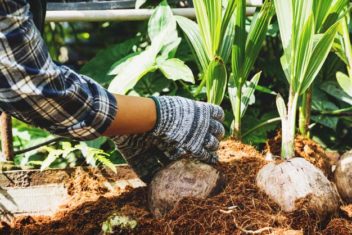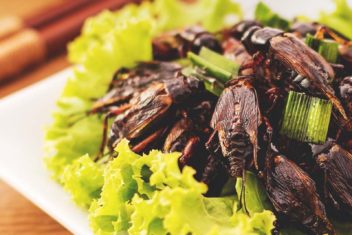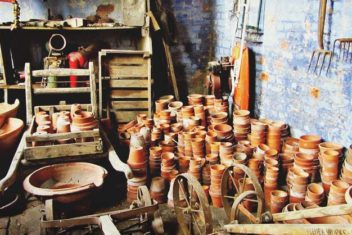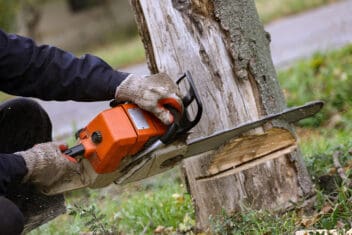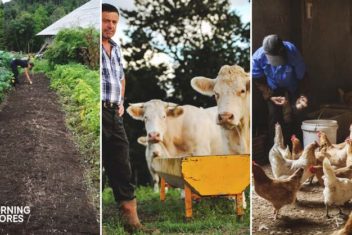If it’s summertime, you know what that means – it’s livestock auction time!
Second only, perhaps, to the county fair or rodeo, the livestock auction is one of the most enjoyable events in the life of a farmer. Going to an auction is a great way to learn more about animals, what they are worth to other farmers, and more.
However, there are also some cautionary tales to be told here. If you have a farm, you have undoubtedly heard horror stories from farmers who lost a great deal of money by buying a not-so-healthy cow, horse, or pig at auction.
Because of this, it’s a good idea to educate yourself before you go. Here are a few things to keep in mind.
What is a Livestock Auction?
While you can always buy livestock directly from a ranch or a farm, buying at a livestock auction is another excellent option to help you build your herd.
The biggest benefit of going to a livestock auction is that you will be able to see dozens, sometimes hundreds, of animals at once. You can purchase animals “in bulk,” also known as buying in lots.
This is great compared to the experience you would have at a smaller ranch or farm, in which you have to purchase animals from a single herd at a time. When you go to a livestock auction, you’ll see animals that were raised all over the place, giving you far more options to choose from.
The variety is beneficial in terms of the different methods in which the animals were raised as well as when it comes to choosing among different breeds. Although it’s common to see individual farms raising multiple breeds, it is much more common to see such diversity at a livestock auction.
Livestock auctions tend to offer animals at more reasonable prices since you’ll be bidding rather than paying a fixed price.
Different Kinds of Livestock Auctions

There are two primary types of livestock auctions you can attend – regular and special sales.
As the name implies, a regular sale is held every week, month, or another regular interval at a pre-scheduled time and date. An auction barn might hold a weekly auction every Friday. These are most commonly held to sell animals like dairy bull calves and cull cows or finished beef cattle.
Special sales, on the other hand, are generally limited to select types of animals, like goats, sheep, pigs, or beef cattle. These are held on more sporadic timelines and aren’t as rigidly scheduled.
Buying Animals at Auction – What to Know

So you’ve seen an auction advertised in your local newspaper – now what? Hitch up the livestock trailer and get ready to go. But first, take a look at these tips so you know exactly what to do.
1. The Biggest Benefits of Livestock Auctions
If you can’t decide whether going to a livestock auction is worth your time, you might want to consider the benefits and disadvantages associated with going to one.
The biggest advantage? Going to a livestock auction can be a lot of fun. You can network with other farmers, see animals for sale, and learn more about the industry.
Some people look down upon livestock auctions because they’re often used as a way to offload sick, ornery, or otherwise unfit animals.
However, when you’re smart about what animals you buy, there’s ultimately nothing wrong with these sorts of events.
There are no commitments. If you go to the auction, you can window-shop. You can just see what farm pigs or other animals are selling for. No high-pressure salesperson is trying to convince you to take home an animal. You are in control of your spending.
A good livestock auction will allow you to fully inspect animals before the auction as well as during bidding. There are good prices for everyone and often, a great selection.
Again, livestock auctions often serve as the gathering place for the community. There are snack bars and entertainment. It’s a great time to be had by everyone!
2. Decide Which Animals to Buy
If you are going to a livestock auction to bring home some animals for your farm, do some research ahead of time about what breeds and species you are looking for, along with any desired characteristics.
It’s a good idea to do some research on the sizes animals should be at certain ages so you know how well an animal for sale is growing, too.
3. Figure Out the Age

Acquaint yourself with what a healthy animal looks like at a given age, based on the species. The more experience you have with a given type of animal, the easier this will be. An experienced rancher will be able to tell the difference between a 2-year-old Hereford and a 4-year-old one.
Often, you can get signs of aging by looking at things like an animal’s teeth or eyes, but this varies based on the species.
4. Determine the Overall Health
In most cases, you will have the opportunity to take a look at an animal before the bidding starts. Watch out for things like bumps, bruises, or patches missing from the hide.
Check the teeth of the animal you want to buy as well as the feet for hoofed animals like sheep and goats. Again, do some research before the auction so you know what signs of health to look for.
Whenever possible, get the paperwork. Most reputable sellers will provide details on an animal’s immunization status, breeding background, and other pertinent information. In fact, most auction houses now require basic health papers.
Don’t purchase sick animals or those with poor breeding, even if they’re cheap. It’s not worth the effort and animals acquired at auction are not returnable.
5. Pay with Cash or Check
This tip is simple – bring plenty of cash or a checkbook. While times are changing, most auction houses do not accept credit cards.
6. Purchase in Pairs

This is good advice for buying cattle, especially, but when you’re buying new livestock of any kind, it’s always a good idea to buy in pairs. The vast majority of livestock species are herd animals and need companions to put on weight and stay within fences.
7. Bring Your Trailer
Even if you’re not convinced that you’ll buy anything at the auction, bring a trailer with you. You never know. Some livestock houses will keep your animals for 24 hours for you so that you can arrange for transportation, but some may want the animals gone ASAP to make room for new ones.
8. Familiarize Yourself with the Protocol
When you get to the auction house, you’ll need to register at the main office. You will be given a sign or placard with a number that corresponds to your registration. When you’re ready to place a bid, all you need to do is hold up the sign.
The auctioneer will talk quickly, something that can get confusing in a hurry. Be ready to move fast! Never wave or stand up during bidding – this could be misinterpreted as you placing a bid.
9. Don’t Be Hasty
Let someone else start the bidding for you. There’s no rush and it’s better to let someone else set the initial price.
10. Watch Out for “Cheap” Sales
It is possible to get a serious discount at a livestock auction.
However, be very careful about a deal that seems too good to be true. Watch other bidders, especially the more experienced farmers, to see what they’re buying. They know quality and how to find it!
11. Keep New Animals Quarantined

When you bring your purchase home, be sure to keep your new arrivals quarantined for a week or so.
You may need to have your vet over to look at them. They can also help you figure out a vaccination schedule, too, before introducing them to the rest of the herd.
12. Ask For Help – and Be Prepared
Don’t be afraid to ask for help!
Getting the hang of livestock auctions can be challenging. However, once you know what to look for, you’ll love the hubbub that goes on here.
Raise Animals Right

Your efforts at the livestock auction don’t end once you’ve brought your newly purchased livestock home.
You must take the extra steps necessary to make sure your animals are well cared for once you unload them off the livestock trailer, too.
You will need to make sure you have chutes, fences, and other handling equipment in place so that you can make your animals comfortable as soon as you get them home.
If you go to a livestock auction with your checkbook in hand, even if you aren’t totally sure that you’ll buy anything at all, it’s a good idea to go with the assumption that you are going to be bringing animals home.
That way, you can make sure your feeding areas, barns, pastures, and other areas are set up and ready to go with everything your animals need as soon as you get them back to the farm.
You won’t be scrambling to find hay, grain, or waterers (or trying to mend a fence!) at the last possible minute.
Going to a livestock auction is a great way to save money and learn more about the industry – but only if you go with the right knowledge.
Follow these tips, and you’ll be able to set yourself up for a profitable, enjoyable experience.

